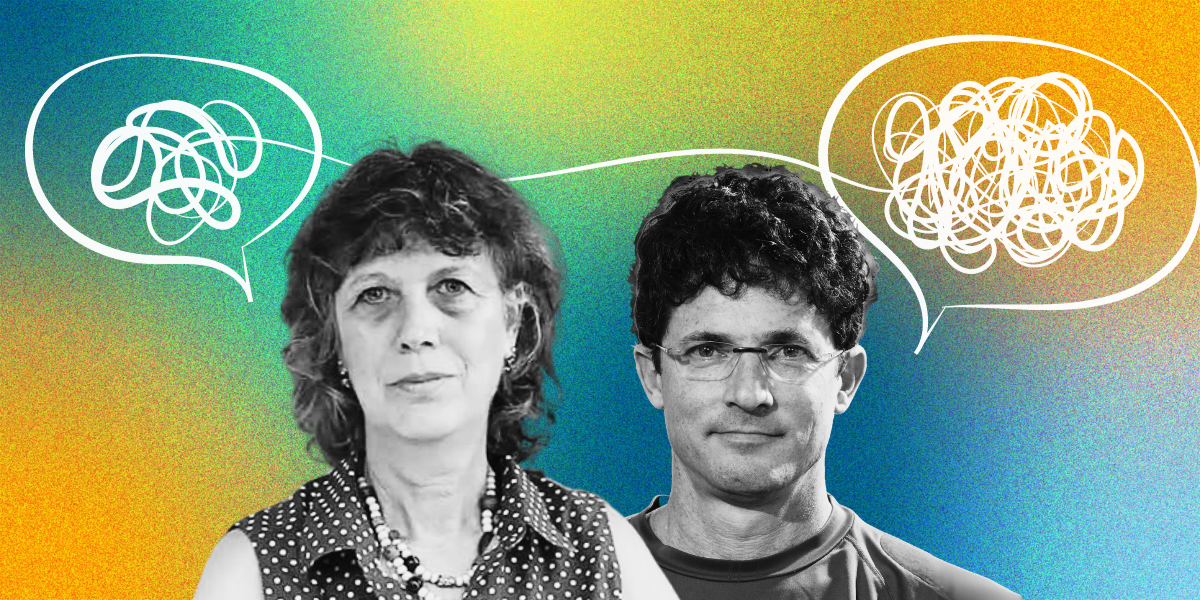
Following the October 7 attacks, recently retired head of Hadassah’s Child & Adolescent Psychiatry Division Dr Esti Galili-Weisstub and her successor Dr Amit Shalev are confronting a "collective trauma" in Israeli society.
In an interview for Hadassah Magazine, the two experts speak about treating the country’s profound collective mental health challenges with its ongoing trauma.
They explain that their work ranges from immediate aid to addressing broader, long-term impacts; they and their colleagues have also shifted focus to emergency mental health, providing crucial interventions like helping children overcome acute stress reaction to sirens.
With decades of experience in trauma and stress management, Dr Galili-Weisstub and Dr Shalev emphasise the importance of restoring a sense of security and trust amidst ongoing instability.
Dr Galili-Weisstub explains that sometimes, a single consultation is enough to address some of the anxiety that young people are coping with. A few days after the terror attacks, she gave basic routine support to a 10-year-old Jerusalem boy who was experiencing an acute stress reaction. Following her meeting with the boy and his mother, he no longer panicked when sirens sounded, and he agreed to venture from his house. “After the consultation,” Dr Galili-Weisstub recalls, “the boy said to me, ‘I’m Okay now. I can let my mum go to work.”
Dr Shalev also reflects that with the shock and unprecedented barbarity of this war, they’re seeing Israelis summon enormous reserves of mental strength.
But, ahead, he adds, “we’re clearly looking to a great wave of mental health struggles. People with pre-existing mental conditions are likely to deteriorate, while those previously healthy are being pushed to their limits. Many are already directly impacted by loss, and in our small country, everyone knows someone who’s lost someone”.
Dr Galili-Weisstub believes that people will need help in regaining their inner sense of security and trust as well as their belief in ultimate goodness, “something we can’t start working on, because there’s still no stability. We’re only at the beginning of our collective trauma. It took a full generation to recover from the trauma of the Yom Kippur War. What we’re experiencing now is far worse”.
In relating to the extreme youth of the victims in recent events, Dr Shalev notes that this has had a profound psychological impact on children and adolescents. He highlights the increased fear among young people as they identify with the victims, exacerbating their sense of vulnerability.
Dr Esti Galili-Weisstub points out the role of social media in intensifying this trauma, as exposure to graphic content can trigger PTSD. She advises that if exposure cannot be prevented, it's crucial for parents to discuss the content with their children, aiming to mitigate its harmful effects.
To help address the mental health struggles of younger children, their wide-ranging efforts include educating healthcare professionals through webinars, establishing a hotline and crisis clinic for direct support, and conducting interventions in communities affected by trauma. This comprehensive approach, despite staffing challenges, leverages expertise in trauma and stress management to aid those impacted. Their strategy emphasises the need to bolster parental support, mirroring air safety protocols, to ensure caregivers are equipped to effectively assist their children through these challenging times.
Hadassah Australia pays tribute to Dr Esti Galili-Weisstub and the 30 years of dedicated expertise and leadership she has provided in and outside Israel to countless trauma victims worldwide. Her expertise and insights in the specialised field of child and adolescent mental health and her many visits to Australia over the years, have built strong friendships and an unbreakable bond between Hadassah Australia and the Child & Adolescent Psychiatry Department she has nurtured and developed.
We warmly welcome Dr Amit Shalev as the new Head of the Division. Dr Shalev is an Israeli army elite forces veteran who specialises in paediatric trauma and suicide prevention therapy and research. His knowledge and expertise will extend and develop the incredible work of the Department of Child & Adolescent Psychiatry and the Jerusalem Crisis Intervention Center. We salute him!
Back to Newsletter